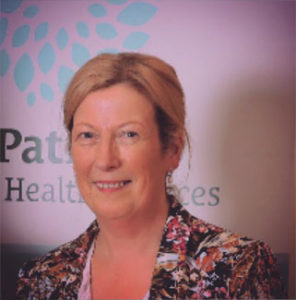Loss, Grief, Bereavement Counselling
Following a loss, each person has his or her own unique emotional experience and way of coping, grieving and reacting. Tears, along with any combination of painful feelings such as sadness, anger, shock, guilt, helplessness or even outrage may occur, and can all be part of the natural healing process. Ordinarily, the passage of time, along with the comfort and support of understanding loved ones, eventually helps people to begin the healing process, in their own time.
As a grief counsellor I help clients to adapt over time to this life-changing and stressful event by working to support them in building resilience and coping strategies to deal with their pain. Resilience is not a trait that people either have or do not have. It involves behaviours, thoughts, and actions that can be learned and developed in anyone. If you find that your pain is not healing with time or that your emotions feel too heavy to cope with, I am available to lend additional support through your grieving, recovery and healing process ultimately supporting you in building resilience.
Trauma Counselling
It is not uncommon to be deeply troubled when we experience the death of others to suicide, violence, industrial accidents, car crashes, natural disasters, terrorism, war and other dramatic, unexpected forms of death. The suddenness, and perhaps the horror or frightening nature of the manner of death can often leave us feeling as if our lives have been turned upside down completely. In addition to more common experiences of grief, we may be plagued by memories or imaginations of what the deceased person’s experience of death was like. We may fall into shock, numbness, fear and ultimately, a crisis of meaning.
A Trauma counsellor helps people process traumatic events that they have suffered and develop ways to cope with resulting emotions. An individual’s reaction to trauma can be complex and varies greatly from person to person. Dealing with the emotional overload that can result from experiencing trauma can often be difficult without professional help. A trauma counsellor can play a vital role in helping someone get past the trauma and the symptoms they may still experience.
Although it can vary, trauma counsellors often work with clients over several months or longer. Since there is not a one size fits all type of trauma therapy, counsellors evaluate their client’s needs, traumatic experiences and personality to determine the right therapeutic approach. Each treatment plan is different. But there can be similar techniques and approaches used.
As a trauma counsellor I use a trauma-focused Cognitive Behavioural Therapy approach to help clients deal with negative emotions. This supports the client to change how they think about the trauma and its aftermath, helping them to replace negative thoughts with more positive and less distressing thoughts.
Crisis Counselling is intended to be quite brief, generally lasting for a period of no longer than a few weeks. It is important to note that crisis counselling is not psychotherapy. Crisis intervention is focused on minimizing the stress of the event, providing emotional support and improving the individual’s coping strategies in the here and now.
Like psychotherapy, crisis counselling involves assessment, planning, and treatment, but the scope of is generally much more specific. While psychotherapy focuses on a broad range of information and client history, crisis counselling focuses on the client’s immediate situation including factors such as safety and immediate needs.
As a psychotherapist I offer support, active listening, unconditional acceptance and reassurance. Offering this kind of non-judgmental support during a crisis can help reduce stress and improve coping skills. In addition to providing support, I help clients develop coping skills to deal with the immediate crisis. This might involve helping the client explore different solutions to the problem, practicing stress reduction techniques and ultimately encouraging positive thinking.

